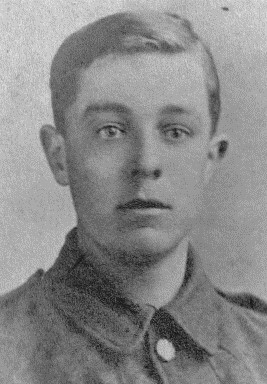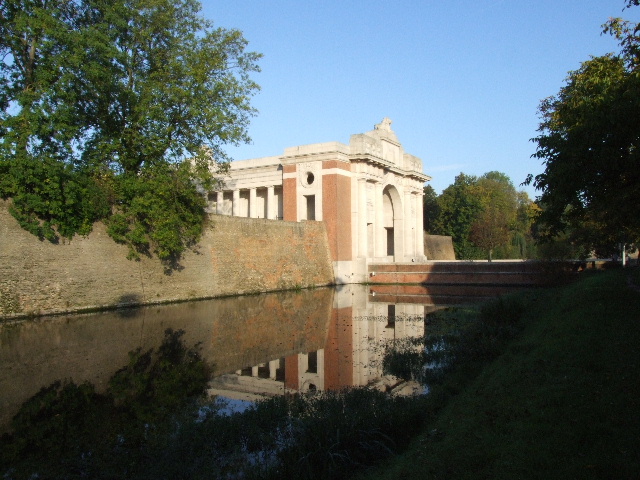Name
Alfred Ernest Long
Conflict
First World War
Date of Death / Age
24/05/1915
20
Rank, Service Number & Service Details
Private
9183
Royal Fusiliers *1
3rd (City of London) Bn.
Awards: Service Medals/Honour Awards
Not Yet Researched
Cemetery/Memorial: Name/Reference/Country
YPRES (MENIN GATE) MEMORIAL
Panel 6 and 8.
Belgium
Headstone Inscription
NA
UK & Other Memorials
Hertford Grammar Memorial - now Richard Hale School, Hertford,
Standon War Memorial,
St Mary’s Church Memorial, Standon,
Puckeridge Memorial Plaque, Standon Village Hall, Standon,
Not on the Ware memorials
Biography
Alfred was a Private, No. 9183 in the 3rd Battalion, Royal Fusiliers (City of London Regiment).
Alfred Ernest was the son of Alfred and Ellen E. Long of Puckeridge. His father owned a business as a builder and undertaker and for much of their time they lived at Dormers in Puckeridge High Street, quite near the White Hart, on the other side of the street.
He was killed in action on 24th May 1915 at the age of 20 and is commemorated on the Menin Gate at Ypres, on Panel 6 & 8.
We do not yet know exactly when or why Alfred and Ellen came to Puckeridge, as neither was from local families. Alfred was born in Saffron Walden and Ellen in Bedford. They appear in Puckeridge on the 1891 census, with Ellen’s mother, perhaps visiting, but no children at that stage.
The first born, of what was to be quite an academic family, was Mabel in 1892. She went on to be a student teacher, married Richard Vogel, and ran her own private school locally. Next came Alfred Ernest in 1895 who may usually have been called Ernest to avoid confusion with his father. Information from a 1907 church newsletter tells us that ‘Ernest’ Long won £1 for Arithmetic from the Standon Educational Foundation, and that he won a type of scholarship for three years to Hertford Grammar School. Next came Arthur Leslie in 1900, who had a brilliant school career, which included being ‘Senior’ boy at Hertford Grammar School and passing the ‘Inter BSc of the London University’ and went on to study Electrical Engineering. Towards the end of the war Arthur was to join the Northants Regiment and happily survived the conflict. Last born was Elsie in 1902. The children were not baptised at St Mary’s in Standon, and there is some evidence the family were Wesleyans, however, both of Alfred’s parents are buried in the churchyard at Standon.
Unfortunately Alfred’s service record has not survived and at the moment we do not know what occupation he followed prior to joining the army but we do know he enlisted in London, so may have been working there. He probably joined up soon after the start of the war, as we know from his Medal Card that he was in France from 13th May 1915, which would have been preceded by some months of training.
His service in France was to be brief, as he was killed after less than two weeks at the front. His body was either unidentified or never found, as he has no grave, but merely his name on a commemoration panel along with more than 54,000 other officers and men on the Menin Gate with no known grave. It is likely that Alfred perished on the last day of the 2nd Battle of Ypres and the Commonwealth War Graves website gives the following information about what happened in that area:
“The Menin Gate is one of four memorials to the missing in Belgian Flanders which cover the area known as the Ypres Salient. Broadly speaking, the Salient stretched from Langemarck in the north to the northern edge in Ploegsteert Wood in the south, but varied in area and shape throughout the war.
The Salient was formed during the First Battle of Ypres in October and November 1914, when a small British Expeditionary Force succeeded in securing the town before the onset of winter, pushing the German forces back to the Passchendaele Ridge. The Second Battle of Ypres began in April 1915 when the Germans released poison gas into the Allied lines north of Ypres. This was the first time gas had been used by either side, and the violence of the attack forced an Allied withdrawal and a shortening of the line of defence.”
This action had cost the British Expeditionary Force 58,000 casualties and the Germans nearly 38,000, for little gain on either side, although the Germans had been held at bay around Ypres.
Additional Information
*1 (City of London) Bn. London
Regiment (Royal Fusiliers).
Acknowledgments
Malcolm Lennox, Di Vanderson, Jonty Wild



